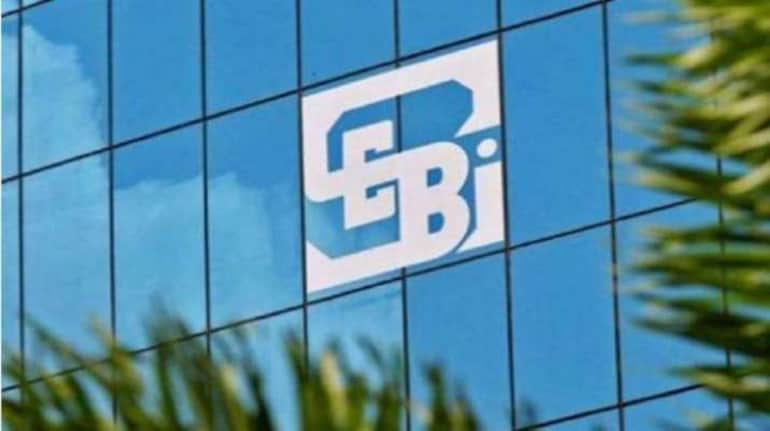Sebi drops insider trading allegations against 11 businesses in the WhatsApp leak case.

On Monday, the market watchdog Sebi rejected insider trading accusations against 11 organizations for allegedly using WhatsApp to spread confidential, price-sensitive information regarding the financial results of Axis Bank NSE 2.20%.
The companies are of Amish Arvind Malbari, Arvind Malbari, Amrish Suresh Vakil, Fanil Motiwalla, Kunaal Raman Khanna, Gaurav Girish Dedhia, Kotak Capital Partners, Hinglaj Enterprise, Nidhi Mehra, BharatKumar V Bagrecha, Mita Mahendra Shah, and Roshan Vivian Saldanha, according to the Sebi order.
Last year, Sebi concluded the adjudication proceedings against two people in the matter involving the alleged dissemination of unpublished price-sensitive information (UPSI) pertaining to the financial performance of six companies, including TCS NSE 1. 53% and UltraTech Cement NSE -0.35%.
The decisions were made in response to the Securities Appellate Tribunal’s (SAT) denial of Sebi’s insider trading charges against particular individuals in the WhatsApp leak case in March 2021, which was later upheld by the Supreme Court on September 26. Before several corporations, including Axis Bank, officially announced their financial results to the stock markets, UPSI about those companies was being disseminated in various private WhatsApp groups.
The regulator then looked into whether PIT (Prohibition of Insider Trading) regulations had been breached between June and July 2017 in relation to Axis Bank’s distribution of UPSI. The private lender, Axis Bank, released its results for the area that ended in June 2017 on exchanges, but the regulator found some figures related to the results were circulated on WhatsApp prior to the announcement.
While Kotak Capital, Hinglaj, Mehra, Bagrecha, Shah, and Saldanha were accused of trading in the company’s stock while in the UPSI’s possession and violating the laws against insider trading, Malbari, Vakil, Motiwala, Khanna, and Dedhia were accused of sharing Axis Bank effects on WhatsApp and being treated as “insiders.”
Sebi dismissed the 11 businesses’ insider trading claims in its order.
“In my opinion, the accusations made against the entities in the current situation are unfounded. As a result, the charges of violating PIT rules leveled against Malbari, Vakil, Motiwalla, Khanna, and Dedhia are likely to be dropped. “Sahil Malik, the adjudicating officer for Sebi, claimed that these people were insiders who disclosed the UPSI to Kotak Capital, Hinglaj, Mehra, Bagrecha, Shah, and Saldanha, who is then accused of trading in the company’s shares while in possession of the UPSI.
The distribution of UPSI regarding specific corporations in various private WhatsApp groups before they are in this sense, official result releases was covered in a wide range of news outlets in 2017.
As a result, Sebi launched a preliminary investigation into the situation, which led to the search and seizure. Comprising around 190 devices, data, and activities against 26 individuals in a WhatsApp group. The messages from the confiscated devices’ WhatsApp conversations were later found to potentially include financial and profit information for roughly 12 different businesses.
Insider Trading Laws
SEBI thought it was important to take drastic action. But to understand what SEBI did next and how the current anticlimactic resolution of the problem came about, one must first understand the fortress of law, specifically the insider trading legislation implemented by SEBI in 2015.
Insider trading is notoriously difficult to identify. There are several challenges to show that insider trading occurred; if even one is not fulfilled, the case as a whole falls. Because many people associated with or employed by the corporation have access to inside information, it must be proven that the individual in question is an insider. It’s challenging to prove whether a specific person had access to inside information in a specific circumstance.
The next issue is determining whether a specific piece of information is important and, therefore, price sensitive. And if it were made available to everyone or just a certain group of individuals, another circumstance is when someone is discovered to have inside information, but it is unclear if they own the information or whether they acquired it from insiders.
A variety of “deeming measures” are included in the SEBI Regulations to circumvent this complicated process. In other words, some events are purposefully assumed to be real unless shown otherwise. These assumptions are sometimes taken for granted and cannot even be challenged. For example, many individuals are viewed as insiders (relatives, directors, associate companies, etc.). Some sorts of information are thought to be price-sensitive.
Someone’s activities are considered “insider trading” simply because they have access to price-sensitive information. Information with a price component is only recognized as published when done in a certain manner. Several pieces of Supreme Court-created legislation assist SEBI. In these circumstances, SEBI just needs to prove that the defendant is guilty more likely than not (the so-called “preponderance of the evidence” standard). Because of this, even the level of proof has decreased.
Choosing the Best Data
Whether a person was connected to the company or other insiders or not, according to SEBI, it made no legal difference because they were insiders simply by possessing secret, price-sensitive information on their devices. Since it is unlawful to provide insider information and to trade stocks while doing so, SEBI ruled the defendants guilty and handed down severe fines. The accuser strongly defended his assertions. They said that they had no link to the company or its insiders. They showed that they had learned from other sources.
They used to receive a lot of information from many sources that were best described as “heard on the street”—basically, rumours or informed guesses. They lacked the means to separate the, say, 100 bits of information they had received from conjecture and true information. Examples of how they disseminated various items, some of which turned out to be false, were provided.
They said that when mining the data, SEBI engaged in “cherry picking,” disregarding the remainder of the material, which was only rumors, and choosing just those bits of information that supported their theory that the parties were at fault. They made a point of emphasizing that they freely distributed all of this information—trash in, garbage out—and that it was up to the recipients to decide whether or not it was valuable. However, SEBI didn’t waver.
The Haystack Challenge
When the parties appealed, the Securities Appellate Tribunal considered the matter objectively and in the context of the whole. It noted that price made up a very small portion, which was also not uniquely distinguished by code or other ways. The legal fiction that just possessing knowledge that is price-sensitive qualifies one as an insider was acknowledged by the SAT. The individual must be aware that this is inside information for it to function, though.
If it is later shown to be correct but was mixed in with many other tidbits at the time, it is not inside knowledge for the receiver. Both the recipient and the person to whom it is forwarded continue to feel as though they are looking for the proverbial needle in a haystack. SAT concluded that it was more probable than not that the individuals were unaware that the information was price-sensitive by using the same well-known preponderance of the evidence technique. So SAT disregarded the directive. The Supreme Court recently dismissed SEBI’s appeal of the SAT decision.
The SAT order has been acknowledged by SEBI in several instances, and the penalty actions against additional parties have been suspended.
Insider trading is common.
It seems the issue has been resolved because the parties were given justice. However, in such a scenario, the bigger picture would be missed. The fact is that the information was public knowledge, despite the participants’ perceptions that it was a metaphorical “needle in a haystack. It suggests that misconduct is taking place. SEBI claims that after reaching out to the companies, it was unable to find any leaks. That can only mean that something was forgotten, though.
After all, the data couldn’t be that precise and accessible to the whole public without being shared. If this is the case for multiple respected companies, and these are the ones that have been uncovered, the true problem may be far worse. Since technology cannot establish the origin of WhatsApp discussions, SEBI claims that it has limits. But that demands a different strategy.
SEBI took steps, including asking an expert committee for a report. One worry is whether there are still concerns about systemic decay and whether this has had any effect. On the other hand, bad decisions taken against parties who were demonstrably at fault caused them expenditures, stress, and occasionally even a small amount of unjustified humiliation. This allows others who may be spreading rumors, speculations, analyses, and so on. Given how much the industry depends on accurate forecasts, this is damaging. At this stage, people can be hesitant to share their assessments, conjectures, and presumptions.
Overall, one expects that SEBI vigorously investigates the sources of these leaks and aggressively resolves systemic issues with a multidisciplinary approach that includes technical competence, even though these cases have been peacefully handled.
Edited by Prakriti Arora





